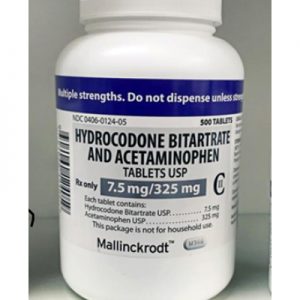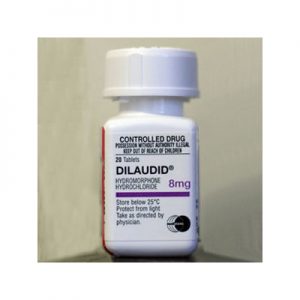Description
BUY CODEINE 60 MG ONLINE, ORDER CODEINE 60 MG TABLETS FROM USA ONLINE
Codeine 60mg is an opiate pain medication that’s sometimes referred to as a narcotic.
Its active ingredient is found in many different medications that treat pain, cough, and diarrhea.
Brand names of drugs containing codeine for pain relief include Tylenol #3, Tylenol #4, Soma Compound with Codeine, Fiorinal with Codeine, Fioricet with Codeine, and Capital and Codeine.
Codeine is available in pill and syrup form.
The drug works by blocking responses to pain, suppressing your cough reflex, and causing drowsiness.
Like all drugs related to or derived from opium, codeine is a controlled substance.
The Drug Enforcement Administration (DEA) classifies codeine as a Schedule II or III controlled substance.
However, low doses of codeine are still sold over-the-counter (OTC) in some states.
Phenergan with codeine, manufactured by Ani Pharmaceuticals, may have been the first codeine-containing product approved by the Food and Drug Administration (FDA) in 1952.
CODEINE AND YOUR GENES
Some people may find that codeine doesn’t relieve their pain.
That’s because the body must first convert codeine into morphine, and some people lack the gene responsible for that conversion.
Also, not everyone’s liver processes codeine at the same rate.
Therefore, people whose bodies break down codeine quickly may need higher doses than usual or more frequent doses to relieve their pain.
And people who process codeine slowly might need lower doses of codeine than usual.
CODEINE WARNINGS
You shouldn’t take codeine if you’re allergic to it (or to any other ingredients in the drug) or have trouble breathing.
If you experience any of the following after starting codeine, talk to your doctor, as you may be allergic to the drug:
- Itching
- Rash
- Hives
Before taking codeine, tell you doctor if you have:
- Kidney or liver problems
- Seizures
- Problems with your stomach or intestines, including a blockage in your intestinal tract and inflammatory bowel disease
- Addison’s disease
- An enlarged prostate
- Had a recent head injury
CODEINE BLACK-BOX WARNING
The FDA requires codeine products to carry a black-box warning because some children who process codeine quickly have had trouble breathing or stopped breathing and died when given codeine after surgery to remove their tonsils and adenoids.
Parents of children and elderly people should talk to their doctors before they begin taking any medication that contains codeine.
CODEINE ‘HIGH’ AND ADDICTION
Numerous online and anecdotal reports have suggested that some people abuse codeine for a narcotic-like “high.”
In addition to being addictive or habit-forming, codeine abuse can result in:
- Nausea or vomiting
- Euphoria
- Memory loss
- Lack of coordination
- Fatigue
Take codeine only as directed by your doctor, and keep this and all other drugs away from children, teenagers, and anyone for whom the drug has not been prescribed.
CODEINE WITHDRAWAL
People who’ve taken codeine for a long time and then stop may experience the following withdrawal symptoms:
Once you’ve been off Codeine 60mg for a while, you might have diarrhea, feel nauseated, throw up, have stomach pain, and have goose pimples.
PREGNANCY AND CODEINE
Some animal studies show codeine may be harmful to a developing fetus.
Adequate study in humans has not been done, so Codeine 60mgmay not be safe for pregnant women to take.
Codeine passes into breast milk and can make it difficult for a baby to breathe, so it shouldn’t be taken by mothers who breastfeed.
Tell your doctor if you’re pregnant, might become pregnant, or are breastfeeding before taking codeine or any medication that contains codeine.
CODEINE SIDE EFFECTS
COMMON SIDE EFFECTS OF CODEINE
- Dry mouth
- Racing heart beat
- Changes in your vision
- Constipation
- Nausea and vomiting
- Stomach pain
- Dizziness and drowsiness
- Headache
- Sweating
SERIOUS SIDE EFFECTS OF CODEINE
- Very slow heartbeat and a weak pulse
- Low blood pressure
- Seizures
- Shallow breathing
- Mood changes or mental disturbances, such as hallucinations, irritability, and confusion
- Dependence on the drug
- Intestinal blockage
- Shock
- Cardiac arrest, or heart abruptly stops beating
CODEINE INTERACTIONS
Tell your doctor and pharmacist about any drugs you’re taking.
This includes prescription and over-the-counter medications, vitamins and other dietary supplements (nutritional shakes, protein powders, etc.), herbal remedies, and any illegal and recreational drugs.
Avoid taking codeine if you are also taking the following drugs:
- Amiodarone (Cordarone)
- Imatinib (Gleevec)
- Antihistamines, such as doxylamine (Unisom), diphenhydramine (Benadryl), and chlorpheniramine (Chlor-Trimeton)
- Potassium phosphate/sodium phosphate (K-Phos) and potassium citrate(Urocit-K)
- HIV/AIDS drugs, such as ritonavir (Norvir) and tipranavir (Aptivus)
- Propafenone (Rhythmol)
CODEINE AND ALCOHOL
Both alcohol and codeine dull the senses, cause confusion, and slow breathing, and taking the two together could worsen these effects.
Avoid drinking alcohol while taking codeine.
CODEINE DOSAGE
Codeine is available as a tablet or syrup, and is best taken with food.
Your doctor will determine how much Codeine 60mg you should take based on your symptoms, condition, and other factors.
Unless your doctor tells you otherwise, try to take codeine only when you need it.
For cough, the usual dose of codeine is 15 to 30 milligrams (mg) every four to six hours as needed. You shouldn’t take more than 120 mg of codeine a day for cough.
For pain, your doctor will usually prescribe 15 to 60 mg of a Codeine 60mg to be taking every four hours as needed.
Try not to take more than 360 mg or Codeine 60mg a day for pain.
CODEINE OVERDOSE
Symptoms of a codeine overdose may include:
- Slow or shallow breathing
- Blue-colored fingernails or lips
- Dizziness, confusion, or fatigue
- Cool, clammy skin
- Loss of consciousness
- Pinpoint pupils
Contact your local poison control center right away at (800) 222-1222 or emergency room if you think you or someone else may have overdosed on Codeine 60mg.
MISSED DOSE OF CODEINE 60MG
Unless your doctor’s told you otherwise, you should generally take Codeine 60mg only when you need it, so missing a dose shouldn’t be an issue.
However, if your doctor did tell you to take Codeine 60mg regularly, and you realized that you’ve missed a dose of Codeine 60mg, try to take it as soon as possible.
If it’s almost time for your next dose, skip the missed dose and take your next dose like you normally would.
Don’t take two doses of the medication at the same time.





